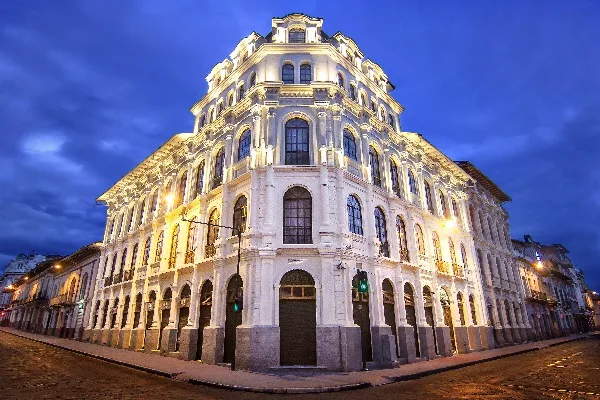Presidential candidates and election officials worry about ‘no’ and undecided voters in Feb. 7 election
As Ecuador’s presidential campaign enters the home stretch, both candidates and officials at the National Elections Commission are concerned about the historically high number of voters who may mark “nulo,” or none of the above, on their February 7 election ballots. The average of seven polls tracking the election shows 25 to 40 percent of voters will either vote nulo or are undecided.

Andrés Arauz campaigning in Cuenca in November.
Simón Pachano, a political science professor on the Latin American Faculty of Social Sciences (Flasco Ecuador) in Quito, says the numbers are unprecedented. “They are alarming and, in fact, make predicting the outcome of the election extremely difficult. They indicate a certain level of apathy toward the candidates and even disgust at the lack of good choices even though there are 16 names on the ballot.”
Compounding the problem, three candidates who were denied a spot on the ballot by the elections commission, Álvaro Noboa, Fernando Balda, Fabricio Correa, are actively campaigning for the no vote. Pachano says this is a “new wrinkle” in presidential campaigns but says its objective is uncertain. “They are floating the idea that a no vote of 40% would nullify the results of the election and this is not true. They are even saying that a no vote will represent one of the denied candidates, either Noboa or Correa, and this too is not true.”
He adds: “A large no vote, if it happens, will certainly be a problem. It indicates distrust of the system and suggests that the next government will face a huge challenge of forming a working coalition with the National Assembly and other political players in the country.”
A student of political polling in Ecuador, Pachano, says the high number of no voters and undecideds make prognostication more difficult than in previous elections. “Polling is notoriously inaccurate in Ecuador since most of the polls are sponsored by the political parities or by organizations connected to the parties. When I offer an opinion on which candidates will make the runoff and which will eventually win, I have to look very closely at the polling organizations and their sponsors when considering their numbers.”
There is general consensus, says Pachano, that leftist candidate Andrés Arauz, a disciple of former president Rafael Correa, and center-right Guillermo Lasso will be the top vote-getters in the election, facing off in the April runoff. “Two polls show Yaku Perez either ahead or tied with Lasso for the second runoff spot, so there is still some uncertainty,” he says.
“Everything I see makes me believe this will be a close election,” says Pachano. “Of the two polls that have been the most accurate over the years, one has Arauz ahead by eight points while the other has Lasso leading by nine. Neither candidate polls above 35 percent. Most of the polls show Arauz making gains over the last two to three months but the ones giving him the biggest boost are ones his supporters have paid for.”
















